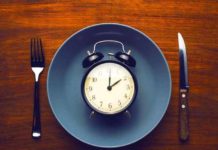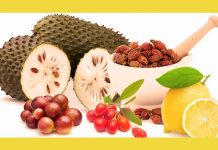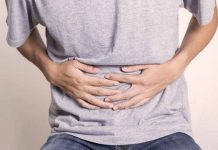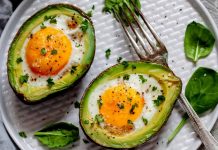
Hunger Pains – Causes, Symptoms and Cure

Hunger pains or hunger pang is a natural reaction of the body, through which it signals an empty stomach. This leads to a sensation of emptiness or gnawing feeling in the abdomen. Surprisingly, hunger pangs can occur even when you are not actually hungry. This can be due to dehydration, sleep deprivation and consuming wrong foods.
Read on to know more about the symptoms, causes and treatment of hunger pangs.
Causes of Hunger Pains
You might experience hunger pangs or pains for various reasons. These may include:
1. Hunger Hormone
An empty stomach causes the brain to release a hormone, known as ghrelin. This is primarily due to hunger or expectation of the next meal. Ghrelin signals the body to release stomach acids. If the food is absent, the stomach acids begin to attack stomach’s lining. This causes hunger pangs or pains. Ghrelin administration in adults ups the hunger by nearly 30% as suggested by studies.
2. Dehydration
Most people cannot distinguish between hunger and thirst because the symptoms are almost similar. Thirst can also cause symptoms like shaking, irritability, hunger pangs and lightheadedness.
3. Quality of Food Consumed
Hunger pangs can be caused even if your body is not actually hungry. This is due to the fact that ghrelin interacts with insulin – a hormone, which regulates blood sugar levels. When insulin level drops, ghrelin secretion increases; thereby, causing hunger pangs.
If you have recently consumed a meal packed with simple carbohydrates or sugar, your insulin will spike and then, fall eventually. This would cause hunger, even if you have consumed your meal just an hour ago. Consuming large amounts of poor-quality food can therefore lead to hunger pangs.
4. Inadequate Sleep
Weight gain and overeating have been largely known to be associated with sleep deprivation. Hunger pangs or hunger pains might be due to lack of sleep or poor sleep quality. According to a study, lack of sleep can make the consumption of fat-rich, sweet and salty food very appealing to you. [1]
5. The Environment
Smells and sights can trigger hunger pangs in some people. Smell of freshly baked stuff or cooking can actually make people to react physically. Images of food online and on T.V. can induce the secretion of saliva. This type of emotional hunger is not necessarily because of the need of food, but it may result in typical physical symptoms like hunger pains.
6. Medical Conditions and Medications
Certain medical conditions like diabetes might also lead to hunger pangs. Other symptoms along with hunger pangs can be indicative of a digestive issue or an infection that may require medical attention. Symptoms might include fever, diarrhea, dizziness, nausea, headache, weakness and vomiting. Certain medications, such as antidepressants can also interfere with ghrelin release.
7. Emotional State
If someone is undergoing stress or stressful situations, brain might signal for food as hunger pangs or pains. A study revealed that body might urgently need food in stress, even when it is not necessarily hungry. [2] A growling or rumbling stomach can help you distinguish between a physical and emotional hunger. These noises are heard only when your stomach is actually empty.
Symptoms of Hunger Pains
A rumbling or gnawing in the stomach can be explained as hunger pains. Contractions or a feeling of emptiness might also accompany the gnawing feeling.
Other symptoms include:
- Tiredness
- Craving for a particular food
- Irritability
- Lightheadedness
- Strong desire to eat something.
Once you consume the food, these symptoms subside. These might also subside on their own when your stomach adjust itself to the new fullness or emptiness level, even without eating anything.
Hunger Pangs While Dieting
After you have lost several pounds of weight on a diet, you might experience frequent hunger pangs. Research suggests that certain neurons considerably fuel appetite once you have lost some amount of body weight. This explains why it is difficult to stick to a diet for long when you keep experiencing hunger pangs. Researchers are hopeful that manipulating these neurons can help people in adhering to their diets.
How To Treat Hunger Pains?

While dieting, you can follow the below-mentioned tips to alleviate hunger pains.
1. Consume Nutrient-Dense Foods
Try to prevent insulin dips by consuming healthier foods instead of processed ones. Consume a balanced diet that includes:
- Lean protein, such as lentils, beans and skinless poultry
- Whole grains, including oats, quinoa, brown rice and whole-wheat foods
- Vegetables and fruits , including canned, frozen and fresh
- Healthy fats from nuts, olives, seeds and avocados
- Low-fat dairy or alternatives to dairy products
Limit your intake of sugar, salt, and saturated and trans fats. Refined carbohydrates like white pasta and white bread must be consumed in moderation or it is good to completely avoid them.
2. Eat Your Meals at Regular Intervals
Ghrelin is released, depending on the meal timings of a person. Adhering to a time schedule for meals helps prevent hunger pains since you eat before ghrelin significantly spikes. It would also be great if you can carry small nutrient-dense snacks along with you like fruits, nuts and other low-calorie snacks while traveling.
3. Stay Hydrated
You must sip water all the day. Aim to drink at least 8 glasses of water every day. Limit the consumption of coffee and alcohol as they are diuretics and might lead to dehydration.
4. Consume Low-Calorie Foods
Certain low-calorie foods are otherwise high-volume, i.e., that they actually fill up the stomach. A fuller stomach means that ghrelin would not spike, which alleviates hunger pangs. These foods include steamed vegetables, vegetable soups, green smoothies and salads.
5. Eat Thoughtfully
Focus on the texture and taste of every bite that you take in while having your meal. It is best to properly chew your food. Don’t watch television while you are eating as you would end up eating more than what is required.
6. Distract Yourself
If you feel your hunger pains are emotional and not physical, you should try to distract yourself. Consider walking, reading, dancing, socializing and working.
Know When To Get Medical Assistance
If your hunger pains persist, even if after a meal, it might be an indication of a gastrointestinal infection or some disorder. In such a case, you must visit a doctor if in addition to hunger pains, you are experiencing the following symptoms:
- Constipation
- Breathlessness
- Diarrhea
- Headache
- Dizziness
- Nausea
- Sudden changes in weight
- Sleep difficulties
- Weakness
- Vomiting
Conclusion
Hunger pains are a natural reaction to an empty stomach. They might also be due to other health conditions, including sleep deprivation, anxiety and dehydration. Hunger pain usually subside when you eat. It would be best to alleviate hunger pains to stick to your weight loss goals.










